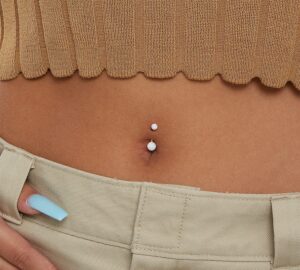Body piercings are becoming more and more popular, especially among young people. Are you thinking about getting a piercing? That’s great!
There are many things to consider before taking the plunge, such as what type of piercing you want and where on your body you want it. But don’t worry, we’re here to help. Keep reading to learn everything you need to know about body piercings.
But before going for body piercing, you must know about a few important things.
In this blog post, we will share a few things to know before you go for a body piercing.
#1 Eat something beforehand
Before you go for a piercing, it is important that you eat something beforehand. This will help to reduce the risk of fainting or feeling lightheaded during the procedure. It is also a good idea to avoid drinking alcohol before getting a piercing, as this can increase the risk of bleeding and swelling.
#2 Check your legal age for piercing
Before you decide to get a piercing, it’s important to check your legal age in your state. In some states, you must be 18 years old to get a piercing without parental consent. However, other states allow minors to get piercings with parental consent. If you’re not sure about the laws in your state, it’s a good idea to check with your local piercing studio or health department.
#3 Everything should be sterilized
The piercing procedure should be done in a clean and sterile environment. All equipment that will be used during the procedure should be sterilized. This includes the piercing needles, the jewelry, and any other tools that will be used. The piercer should also wash their hands thoroughly before starting the procedure.
#4 Skip the piercing gun
Avoid plastic guns for piercing. It should be done with needles. This is because guns can cause bruising and swelling. The needles, on the other hand, are much less likely to cause these problems.
#5 Initial bleeding is normal
After the piercing procedure, it is normal for there to be initial bleeding. This is because when the needle pierces through the skin, it causes a small wound. The bleeding should stop within a few minutes and the area can then be cleaned with soap and water.
#6 Initial irritation is normal
Immediately after the piercing procedure, it is normal to experience some initial irritation. This is usually due to the body’s natural reaction to the new piercing and should dissipate within a few days. In the meantime, it is important to clean the piercing regularly and avoid touching it too much to help prevent infection. Once the initial irritation has subsided, you can enjoy your new piercing and wear your favourite body jewelry!
#7 Watch for the infection signs
After you get a piercing, it’s important to watch for any signs of infection. These can include redness, swelling, discharge, or pain around the piercing site. If you notice any of these signs, it’s important to see a doctor or piercer as soon as possible to treat the infection.
If you notice any redness, swelling, discharge, or pain around the piercing site, be sure to report it to your piercer or doctor right away. By catching an infection early, you can help prevent it from becoming more serious.
#8 Skip swimming for some time
After you have had your piercing done, it is important to avoid swimming for a while. This is because the water can cause irritation and even infection. So, take a break from the pool or ocean and give your new piercing a chance to heal.
#9 Avoid it if you are pregnant
If you are pregnant or have just delivered a child, you must avoid piercing. This is because piercing can cause complications such as infection, bleeding, and scarring. Additionally, it can be difficult to heal properly after giving birth. Therefore, it is best to wait until after your pregnancy to get pierced.




